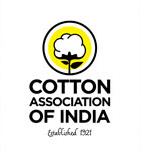23 Jan '25
(Fibre2Fashion News Desk (KUL): The Northern India Textile Mills’ Association (NITMA) has appealed to Indian Prime Minister Narendra Modi for immediate intervention to curb abusive practices in the import of synthetic knitted fabrics, which are causing irreversible damage to the domestic textile industry and resulting in losses of thousands of crores to the government exchequer.
Insights
NITMA has urged Indian PM Narendra Modi to curb under-invoiced imports of synthetic knitted fabric, citing severe damage to the domestic textile industry and ₹10,000 crore losses to the exchequer.
Despite a $3.50/kg Minimum Import Price, imports surged to 130 million kg in July–Sept 2024.
NITMA seeks stricter enforcement and a probe into misdeclared HS codes at Indian ports.
The industry body sent a letter to the Prime Minister a few days before the Union Budget 2025–26, which Union Finance Minister Nirmala Sitharaman is scheduled to present on February 1 in New Delhi. The budget offers an opportunity for policy adjustments aimed at strengthening the country’s economy.
In its appeal, NITMA has urged the Prime Minister to address the issue of under-invoiced imports of synthetic knitted fabric (under Chapter 60) and the misdeclaration of HS codes at Indian ports.
NITMA president Sidharth Khanna highlighted a list of importers involved in these underpriced fabric imports, who circumvent HS codes to bring in fabric at approximately $1 per kg, whereas the actual global price ranges between $4–6 per kg.
Notably, earlier this month, the government extended the imposition of a Minimum Import Price (MIP) of $3.50 per kg on 13 specific HSN codes for synthetic knitted fabrics until March 31, 2025.
Despite these efforts, Khanna pointed out that underpriced imports continue to rise.
Synthetic knitted fabric imports declined slightly from 89 million kg in the January–March 2024 quarter to 81 million kg in April–July 2024. However, imports jumped to 130 million kg in the July–September 2024 quarter.
Trade data indicates that following the implementation of MIP, importers have shifted imports to other non-MIP HS codes within Chapter 60, making the current enforcement method ineffective.
Khanna further warned that these under-invoiced imports are causing severe damage to the textile industry, leading to the closure of dyeing, knitting, and spinning units. This has resulted in a loss of over ₹10,000 crore ($1,156.32 million) to the government exchequer due to the evasion of both direct and indirect taxes. Notably, the top importers of synthetic knitted fabrics are logistics companies, with a significant portion of these hailing from Nandiambakkam SEZ, near Chennai.
Khanna urged the Prime Minister to initiate a comprehensive investigation into these under-invoiced imports and the misdeclaration of HS codes at Indian ports. He emphasised the need to send a strong message to importers who blatantly violate trade regulations, undermining fair competition and eroding trust in the market. (Source: Fibre2Fashion.com)
